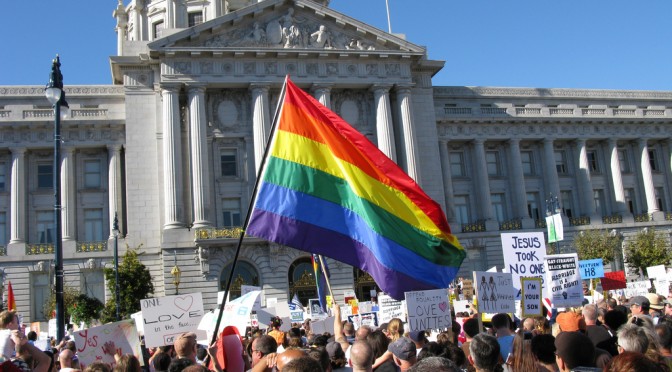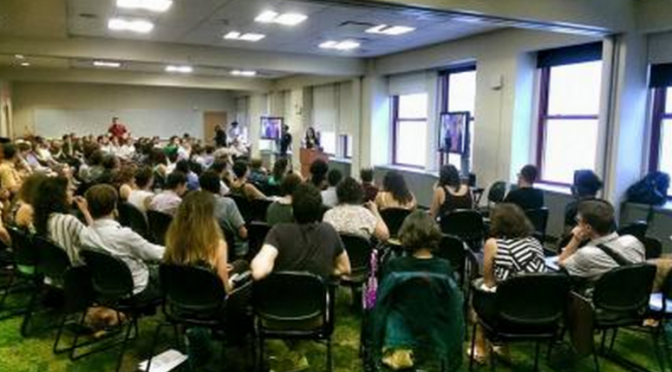By Tamara Robinson
I consider myself an ally to my LGBTQ brothers and sisters, and I am damn proud of it.
This can make me less proud of the labor movement I am so committed to due to its tendency to overlook the experiences of gay, lesbian, trans, queer, bi-sexual, gender questioning, and otherwise unconventionally-sexed individuals in the workplace in the fight for workers’ rights.
This tendency to overlook falls into an all-too-familiar pattern in which social movements fight for the empowerment of marginalized groups by waging a segmented battle for air time, resources, and legal wins. In this model, a “victory” carves out one minority population’s access to a right or institution from which they were previously excluded, with the hope that this will leave breadcrumbs so that the next group can take up the fight. Continue reading #MovementEquality







